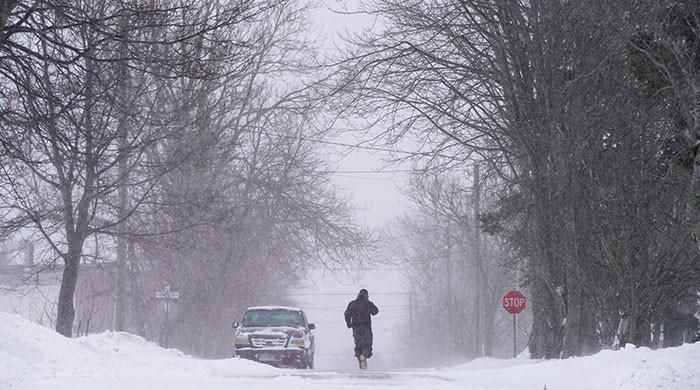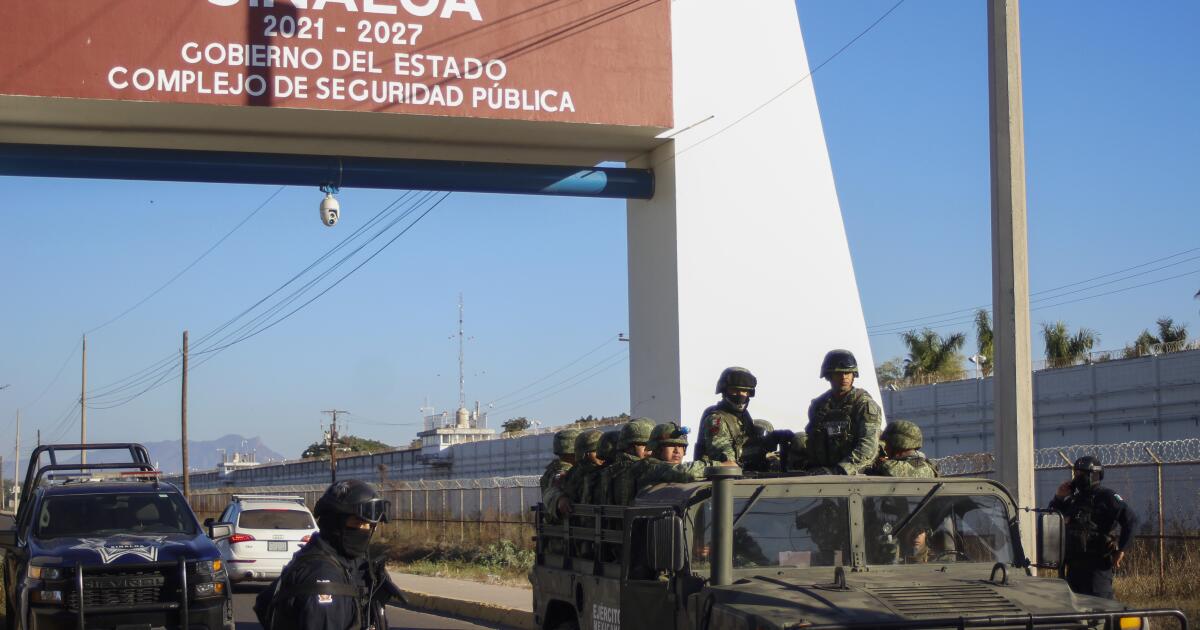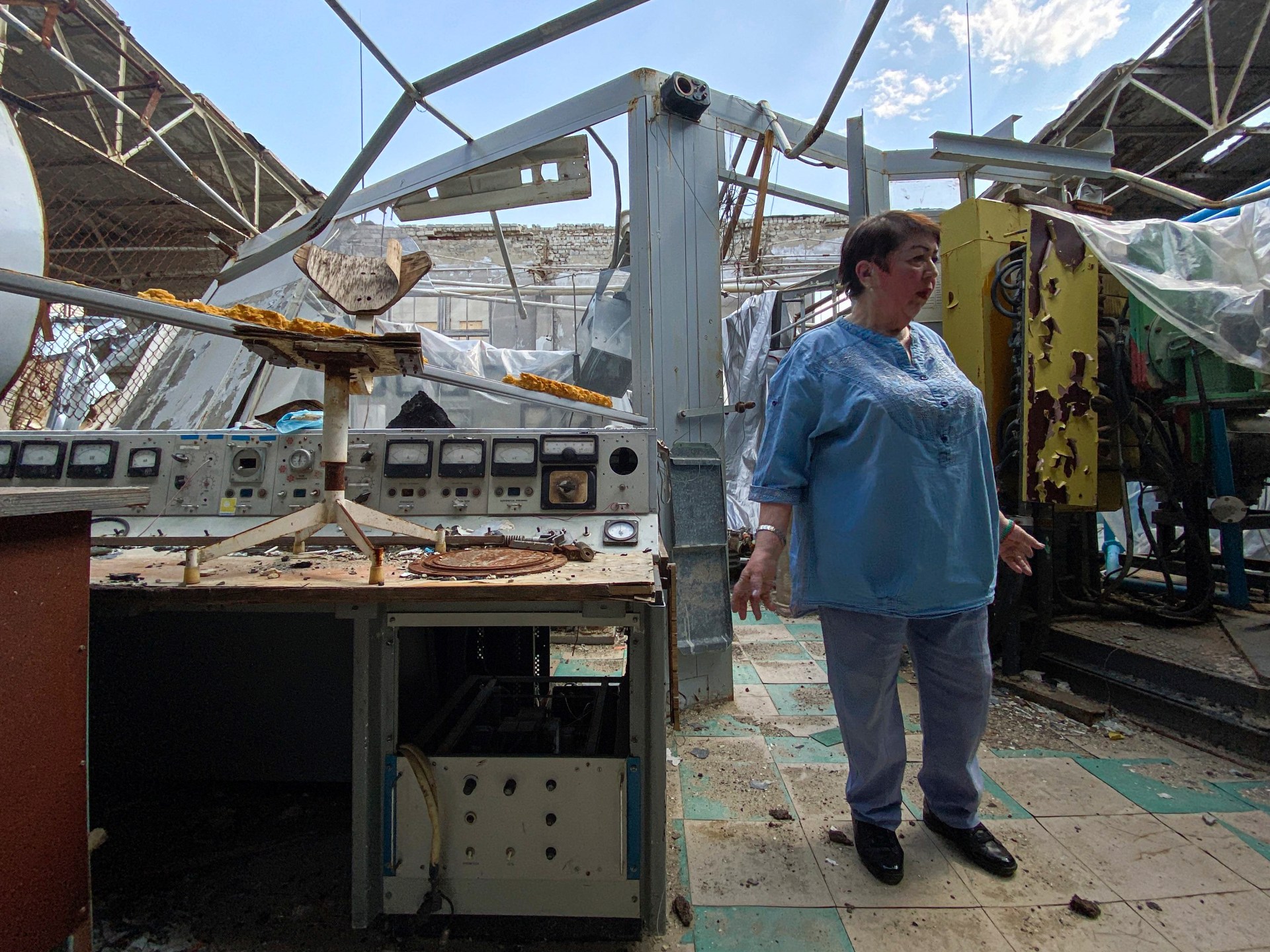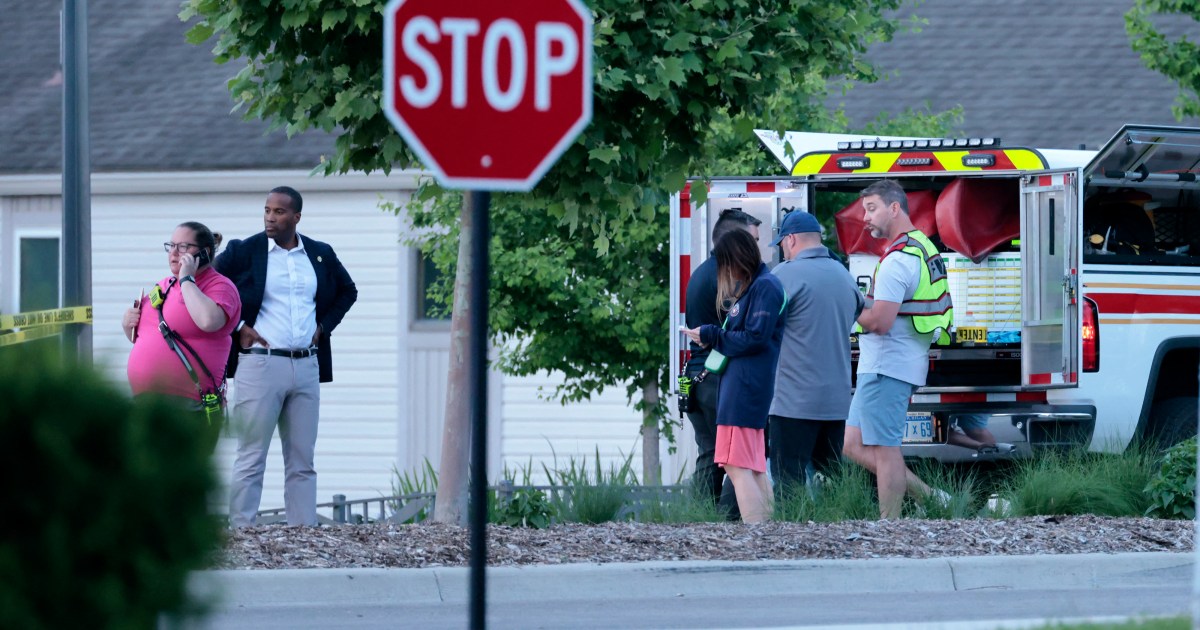WASHINGTON: A powerful storm hit the eastern United States on Monday, bringing heavy snow and freezing rain that claimed five lives and left millions of people facing travel chaos from the Central Plains to Washington, DC.
Some 350,000 people were left without power in nine states, while more than 1,800 flights were canceled and thousands more delayed, according to tracking websites. Poweroutage.us and conscious flight.
The National Weather Service (NWS) predicted up to 30 centimeters of snow in Washington, where Congress was preparing to move forward with the certification of Donald Trump's electoral victory, four years to the day his supporters stormed the United States Capitol. United to try to overturn their 2020 Loss.
House Speaker Mike Johnson has called for “full assistance” from Congress regardless of the weather.
The capital's brightly colored terraced houses and normally tree-lined streets were covered in white on Monday as residents walked through the snow and schools were closed in a city that rarely has to contend with such winter conditions.
The storm moved east after bringing blizzard conditions to states including Kansas and Missouri.
Lethal conditions
So far, at least five people have died in storm-related incidents.
The Missouri State Highway Patrol recorded one death when a truck hit a pedestrian on a snowy road, while two people died in a car accident in Kansas, US media reported. Both incidents occurred on Sunday.
“Snow has turned to ice…causing power outages and more dangerous road conditions. Transportation crews are working hard to clear roads for utility crews and emergency travel,” the governor warned of Kentucky, Andy Beshear, asking residents to stay home.
Video clips showed cars skidding on icy roads and tractor trailers tumbling in Kansas.
A White House spokesperson said President Joe Biden was closely monitoring the severe weather and was ready to support affected states.
The NWS warned that the storms could also hit southeastern states, bringing hail and tornadoes, and that accumulations of thick ice, as well as widespread tree damage from powerful wind gusts, could lead to prolonged power outages.
Temperatures are expected to drop, in some places below zero degrees Fahrenheit (minus 18 degrees Celsius), while strong gusts of wind compound the dangers. The mercury could drop dozens of degrees below seasonal norms on the US Gulf Coast.
Another major concern is freezing rain and sleet. The ice will make travel dangerous, knocking down trees and downing power lines, officials warned.
Conditions could prove especially dangerous in the Appalachian mountain region, where a deadly hurricane in late September devastated communities and ravaged several southeastern states, including Kentucky.
The governors of Kentucky, Missouri, Virginia and Maryland have declared states of emergency in their states and have taken to social media to warn residents to stay home.












